Disclosure: Articles may contain affiliate links. As an Amazon Associate, we earn from qualifying purchases (at no additional cost to you). See our full disclosure here.
Last updated on September 29th, 2023 at 11:23 pm
Imagine walking into a house that perfectly reflects your style. Or, picture finding a pre-built house that’s just what you want — ready for you to move in and make your own.
Although the choice between building and buying a home is an exciting crossroads in life, it’s not just about aesthetics and dreams. Instead, homeownership is more often about making a financial decision you won’t regret in the future.
In this article, we’ll take a dive into the financial aspects of building a house versus buying one. Let’s get started!
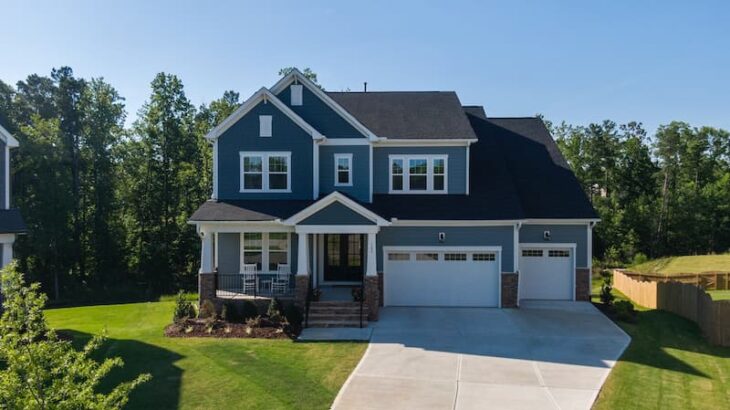
Building vs Buying a Home
Is It Better to Build or Buy?
Buying a home simply means purchasing an existing (livable) residential property. But building a home means you own a piece of land, and now, you’re going to construct a house on it that you intend to live in.
At first glance, buying is much more convenient because you only have to pay for the home and move in. And building appears to be the more complicated choice since you have to get construction quotes, arrange the construction, find professionals, and invest the time to get it all done.
But which option is most cost effective, and which is right for you?
Cost of Building vs Buying a Home
Let’s crunch the numbers to determine whether buying or building a home is better for your pocketbook.
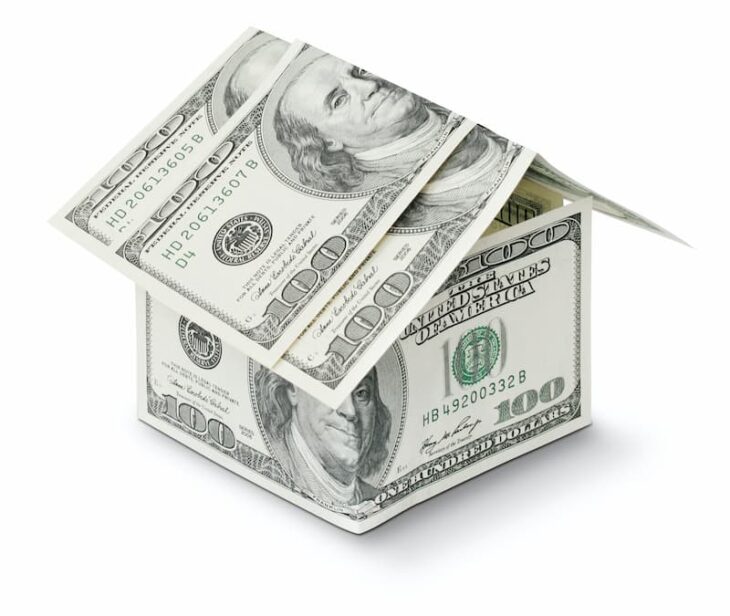
1. The Initial Investment
According to mortgage experts, you’ll make one of these two investments when buying a home:
- Purchase Price – This is the sale price of the house. Once you pay it, you legally own the house. The average sales price for homes in the first quarter of 2023 was around $436,800.
- Down Payment – If you aren’t paying for the house in full (most common), you’ll have to secure financing and make an initial down payment. This could be anywhere from three to 30% of the total purchase price. According to the National Association of Realtors (NAR), the average down payment is about 13%. You’ll also have to pay closing costs. These are normally two to six percent of the purchase price.
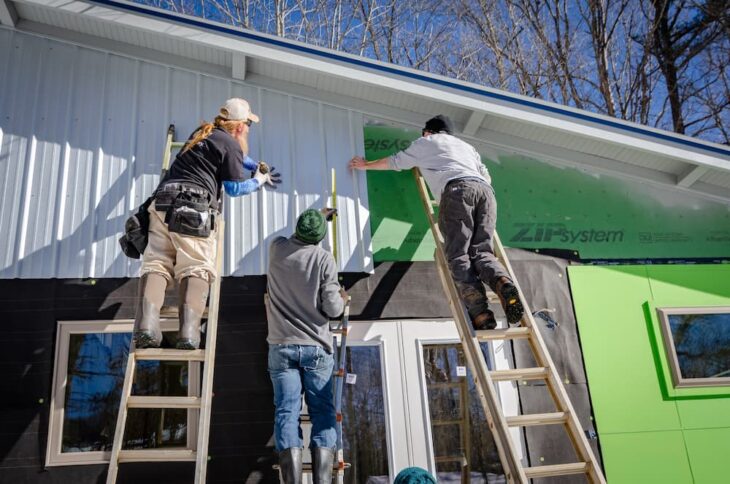
On the other hand, if you’re building a house from the ground up, here are some of the initial costs you’ll incur:
- Land Acquisition – This is the cost of the land on which you’ll be building your home and may range from $3,000 to $150,000. The exact cost will depend on the location, the size of the lot, and the desirability of the land and surrounding area. In some cases, this may be the biggest initial investment when building a custom home.
- Construction Costs – This includes expenses related to labor, materials, permits, architectural plans, and other construction-related fees. And the exact cost can vary depending on the size, complexity, and customization of your home, as well as regional construction costs.
So, building is typically more expensive than buying an existing house. And although there are ways to cut down construction costs (such as searching the market for the cheapest materials), this requires some time and effort.
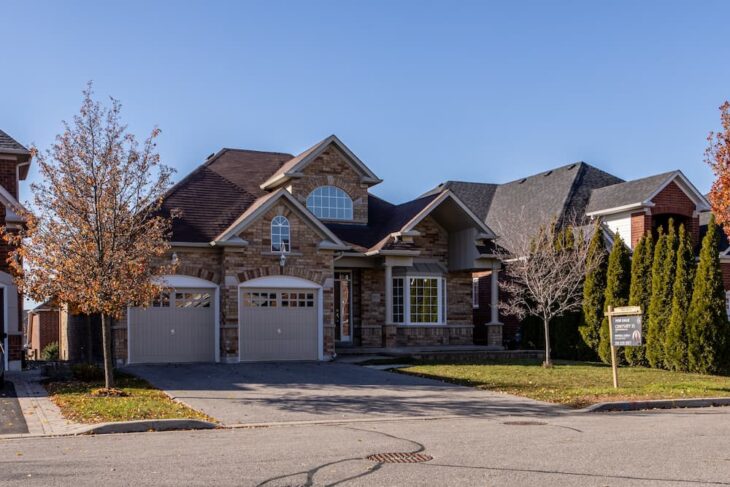
2. Long-term Costs
The long-term costs of any residential space include the following:
- Property taxes
- Homeowners Insurance
- Maintenance and repairs
- Utilities
- Homeowners association (HOA) fees
- Home improvements and upgrades
Your financial liability for these expenses is more or less the same whether you’re building or buying, with a few exceptions.
You might have to spend a little more on maintenance, repairs, utilities, home improvement, and upgrades if you buy an existing home because of its age and the wear and tear that’s already taken place.
Plus, you’ll have to pay for renovations to get rid of features you don’t like or replace them with something you prefer.

3. Financing Options
If you don’t have enough capital to buy or build your dream home, of course you’ll need financing. This may include the following:
- Mortgage (this may be conventional, adjustable, or fixed-rate)
- Government-backed loans (Federal Housing Administration (FHA), Veteran Affairs (VA), and United States Department of Agriculture (USDA) loans)
- Bridge loans
If you’re building your home from the ground up, there are financing options for you too, including exploring DSCR loan rates to determine the most suitable and cost-effective financing solution for your new construction project.
You’ll likely need to secure one of these kinds of loans for your new home building project:
- Construction loan
- Renovation loan
There are more financing options for buying compared to building a home — meaning there’s greater flexibility and a wider range of interest rates to choose from. In contrast, interest rates for construction loans are generally higher than for house-buying loans.
However, in both cases, you’ll be granted a loan based on market conditions and your creditworthiness. So, to pick the right financing option, consult a mortgage professional or loan officer.
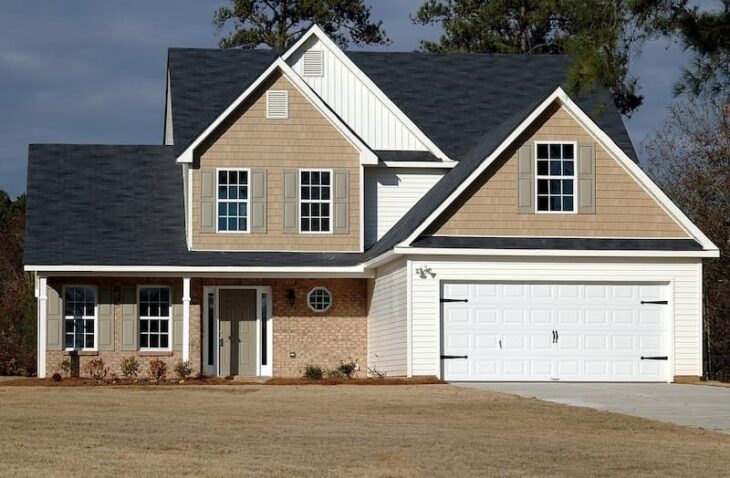
Building vs Buying a Home–Which is the Better Financial Choice?
Financially, buying a house is a wiser choice for most of us because it saves both money and time.
But if you’ve got enough savings and are able to devote the time to overseeing a new build, you can make your dream home a reality.
Whatever you decide, homeownership is a worthwhile goal for just about everyone.
Also read:
Get Your Truly FREE Credit Report and Credit Score Online
How to Better Understand Your House Mortgage
Build Your Savings with 12 Easy Frugal Living Tips
You can find MomsWhoSave on Facebook, Instagram, Pinterest, and Twitter. Join us for updates!
Leave a Reply